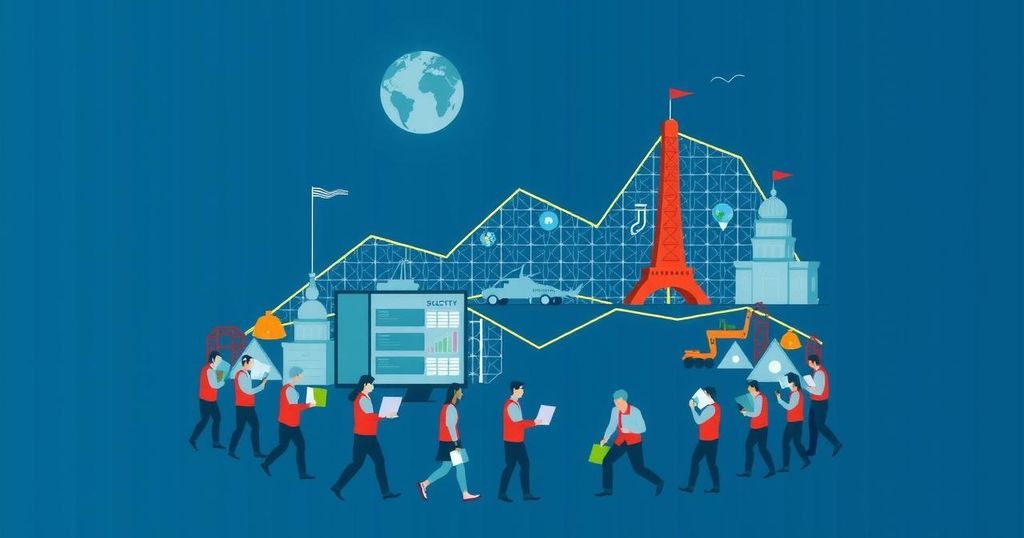At COP29 in Baku, the U.S. climate team reaffirmed its commitment to global climate action despite the transition to a new administration under Donald Trump. John Podesta led negotiations focusing on increased financial support for developing nations facing climate challenges, amid discussions of heightened climate aid. Global leaders emphasized the need for proactive measures and collaboration during this pivotal conference.
The U.S. climate team, led by John Podesta, actively engaged in discussions at COP29 in Baku despite knowing they would soon be out of office following the upcoming administration change. They emphasized continuity in U.S. climate action even as former President Donald Trump, a known climate skeptic, prepares to take office once again. During the conference, the U.S. is involved in complex negotiations aimed at significantly increasing financial support for developing nations to adapt to climate change and transition to renewable energy sources. Podesta reassured attendees that actions against climate change would persist, focusing on ambitious outcomes despite the uncertainties posed by the shift in leadership. Additionally, Ali Zaidi, President Biden’s climate adviser, highlighted that despite the challenges faced during Trump’s term, critical climate finance efforts prevailed. He noted the persistence of the previous administration’s investments, allowing continued progress towards climate financial goals. The negotiations at COP29 center around proposals to increase climate aid to developing countries significantly, with some advocating for a tenfold increase to $1 trillion annually. Zaidi expressed confidence that the U.S. would contribute effectively to the negotiations aiming for significant climate commitments. As the discussions proceed, it is essential that other nations do not use the upcoming U.S. elections as a justification for inaction. A keen determination among global participants is evident as they strive to advance agreements on energy transformation and climate finance. The U.S. team maintains that they will effectively participate in fostering negotiations that aim for responsible climate solutions, despite the looming uncertainties from the election outcome.
The context surrounding COP29 is critical, as it follows significant global commitments made at previous climate conferences. The United States, under President Biden, had pledged to recommit to international climate agreements, including the Paris Accord, after the previous administration’s withdrawal. However, with the impending transition back to a Trump-led administration, there is widespread concern about potential reversals in climate policy. COP29 provides a platform for ongoing negotiations regarding climate financing, especially for vulnerable nations facing the brunt of climate change impacts. This conference is instrumental in maintaining global momentum toward ambitious climate actions amidst political uncertainties.
In summary, the U.S. climate team is working hard at COP29, despite impending changes in leadership that could alter the country’s climate policy stance. They aim to assure other nations of the commitment to climate action while actively participating in negotiations for increased financial aid to developing countries. The determination of global leaders to make significant progress toward climate goals persists, underscoring the importance of collaboration at this critical juncture. Stakeholders globally must remain proactive in advancing climate finance and initiatives, regardless of political leadership.
Original Source: www.rfi.fr






